“We Want Salt, We Want Shorebirds”
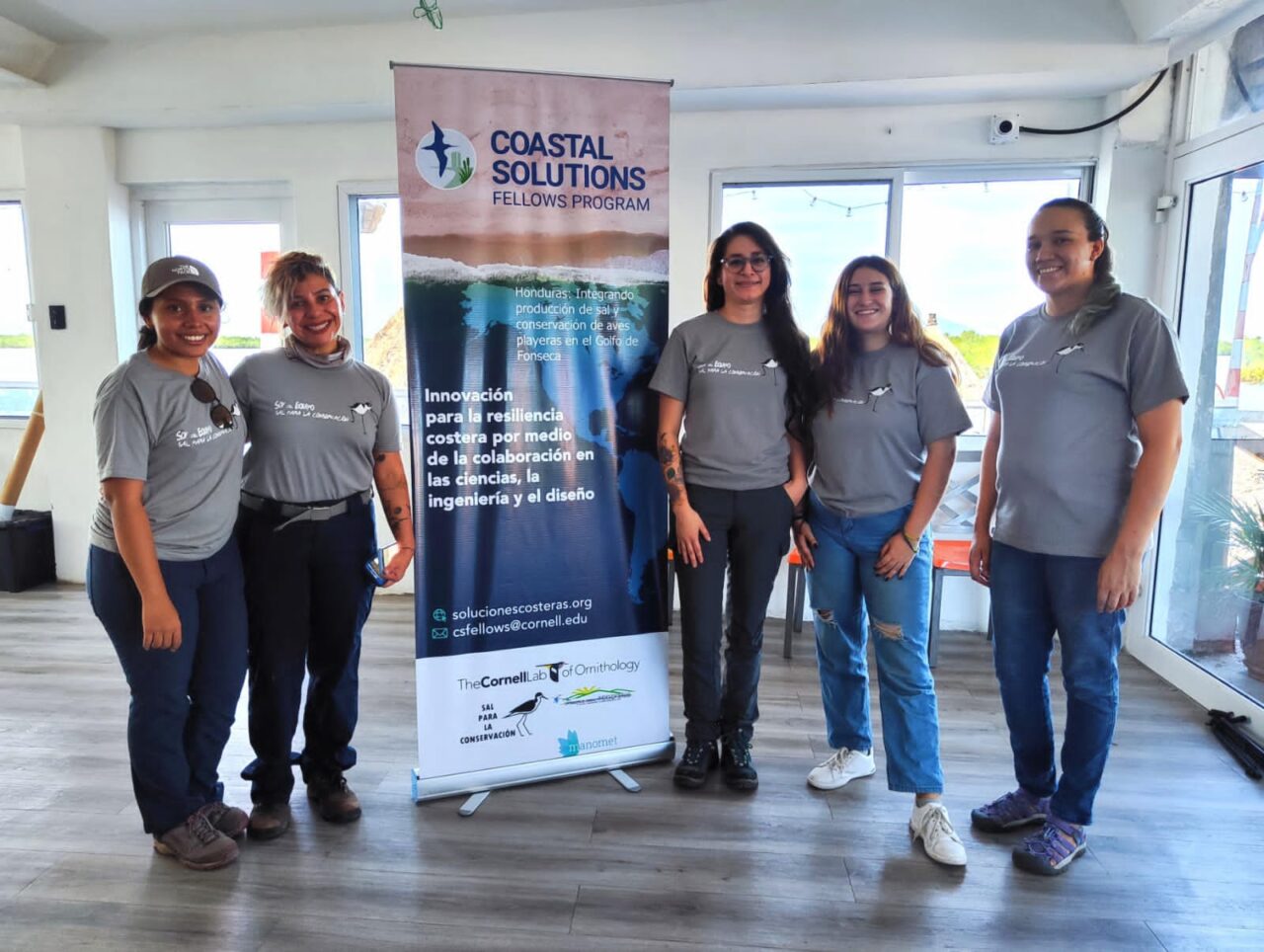
By: CSFellow23 Julia Salazar
On September 8, 2023 in San Lorenzo, Honduras, we convened the first workshop “I am a Salt Producer and I Support Conservation”, a product of my Coastal Solutions project “Honduras: Integrating salt production and shorebird conservation in the Gulf of Fonseca”. This workshop was held with the support of the National Association of Salt Producers of Honduras (ASOPHORSALH), Juan Martin Bermudez director of the Fund for the Custody and Recovery of the Salt Marsh (SALARTE) of Spain, and members of ‘Sal para la Conservación’ Initiative, as well as our collaborators Tania Erazo, Jorge Luis Palma and Isadora Martínez Angarita, my mentor, deputy director of the WHSRN/MANOMET Executive Office and AMBI coordinator for the Americas.
“We want salt, we want shorebirds” was the call of the 30 salt producers who attended the event, including artisanal producers from San Lorenzo and Choluteca, in the Honduran Pacific. In addition, we had the participation of the president of ASOPROSALH, Mr. Marcio Molina, and 6 women producers in the industry.
This event marks the beginning of the project that will be developed in the salt farms of San Lorenzo Bay. The workshop was focused on informing producers about the importance of salt farms for shorebirds and other wildlife species that use these productive sites. In addition, we wanted to obtain information on how salt farms function in Honduras, the perception of producers about their knowledge of migratory birds, the needs and problems faced by the industry, and to identify with them the benefits they would like to obtain from the implementation of this project.
The workshop was divided into 4 main components: positioning Honduran salt farms within the context of salt farms worldwide, learning about artisanal salt farms in Honduras, presenting the topic of shorebirds and their relationship with salt farms, and ending with the benefits that producers visualize as products of this project, both for them and for the salt industry in general. The participants mentioned the need for a map of their salt farm and the entire extension of salt production in Honduras. They also shared their interest in understanding how shorebirds benefit from salt farms. During the event, several group dynamics were held to integrate the producers in the conservation processes.
Our collaborator Juan Martin Bermudez, director of the Fund for the Custody and Recovery of the Salt Marshes of the organization SALARTE, sent a warm greeting to the Honduran producers and shared with the group his insights and experience in the restoration of the salt marshes in the Bay of Cadiz in Spain. SALARTE is a Spanish, non-profit organization founded in 2012 with the objective of recovering, managing, and highlighting the value of salt marshes. It works to demonstrate that sustainable management of the marshes generates social and economic benefits, enhances biodiversity and strengthens the link between people and the environment, developing projects such as the “Saltpan Initiative” funded by the MAVA Foundation through BirdLife International, to carry out restoration work in the salt marshes of the Bay of Cadiz Natural Park. SALARTE is a clear example of how salt production has cultural, economic, and environmental value and is a model that could be replicated in other countries with artisanal salt production.
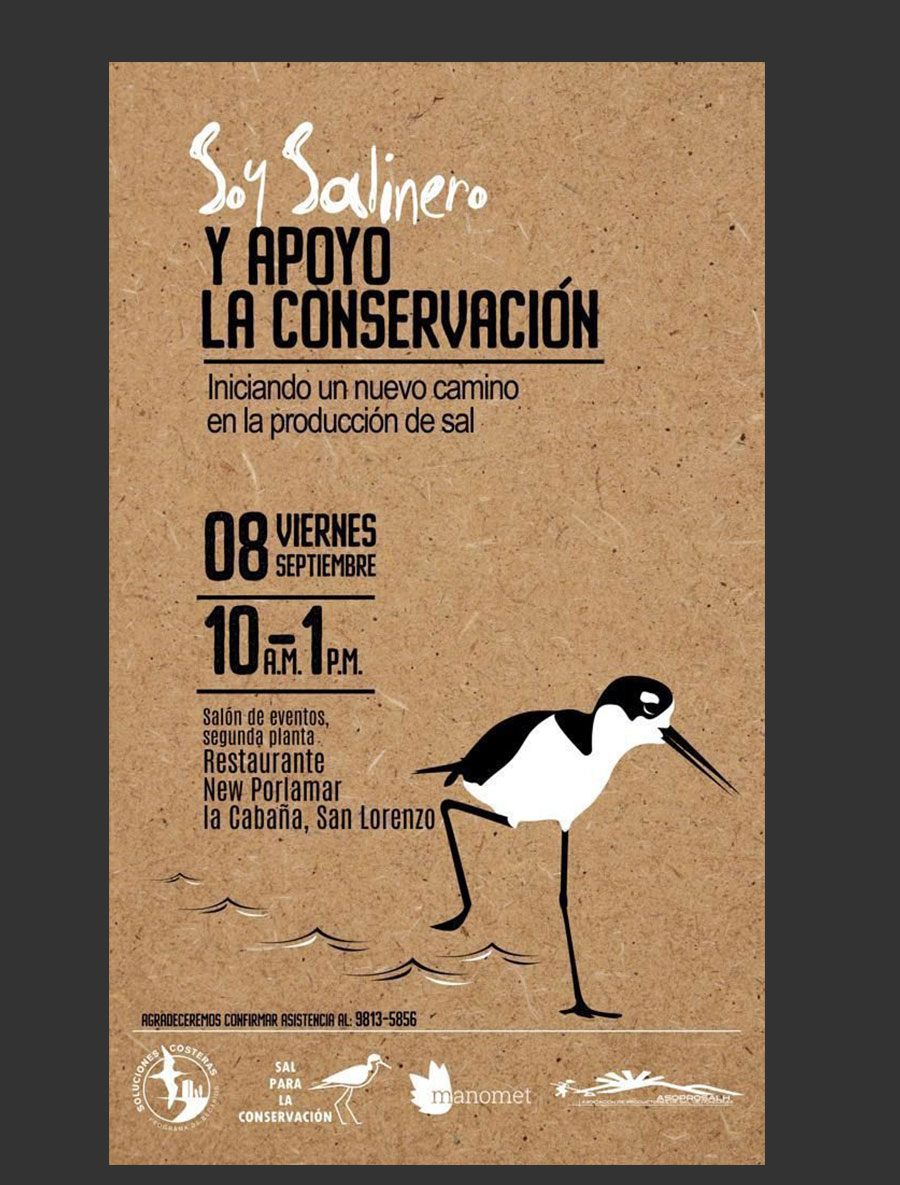
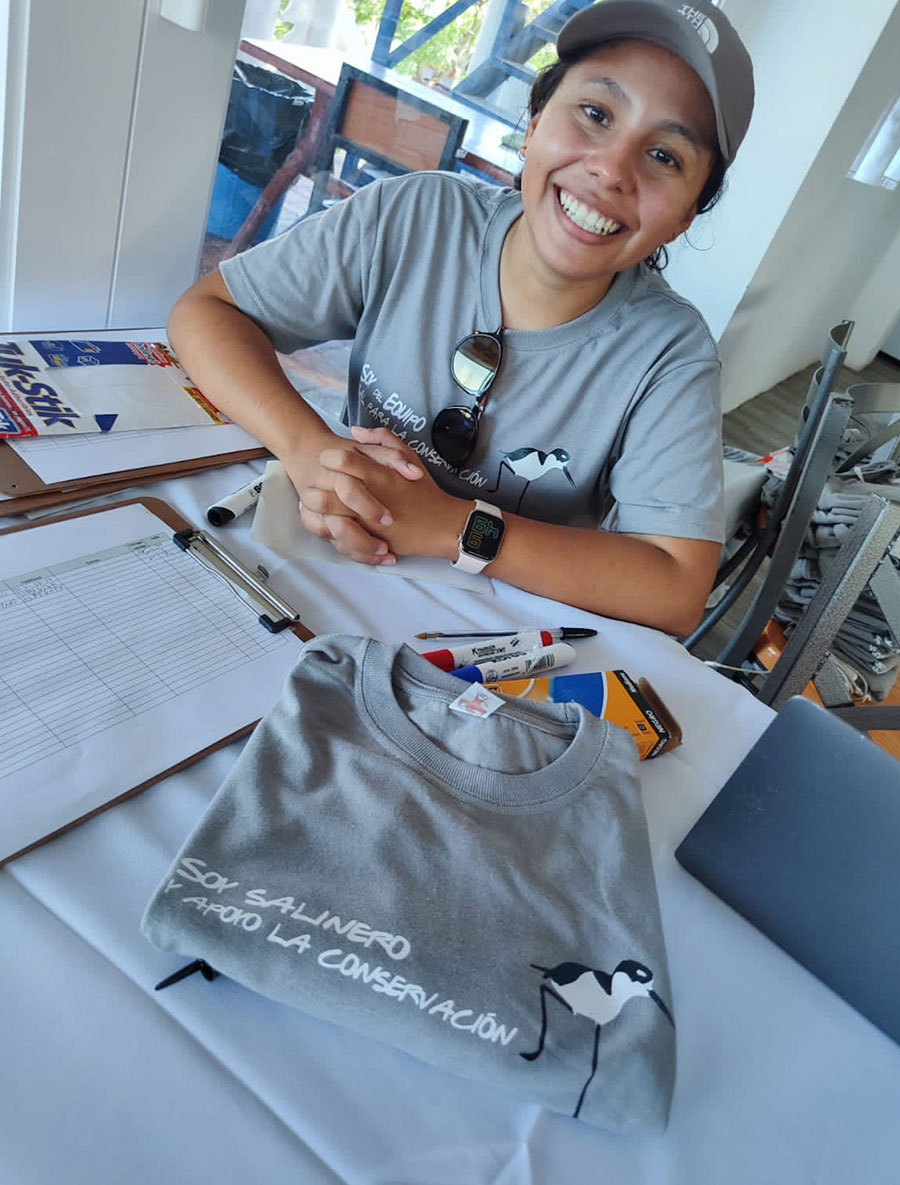
One of the objectives achieved during the workshop was that producers identified several needs and problems, such as climate change and its impacts on artisanal salt production. Currently, it is very difficult to plan a production season because natural phenomena, which increase rainfall in the area, are becoming increasingly common and this affects production. For artisanal salt production, dry conditions and high temperatures are necessary to obtain this precious mineral.
Sharing these concerns made them feel identified with other members of the guild and understand the importance of implementing sustainable practices and processes for salt production that are compatible with the environment. They showed interest in the tourism initiatives that have been carried out in other countries for salt producing sites and envision a similar future for Honduras.
As next steps, we will conduct other workshops with the producers, focused on increasing their knowledge of the importance of the ecosystems of the Gulf of Fonseca in Honduras, and the natural conditions that allow the production of salt in this part of the country, in addition to enhancing the tourism capital of the area through monitoring and bird watching.
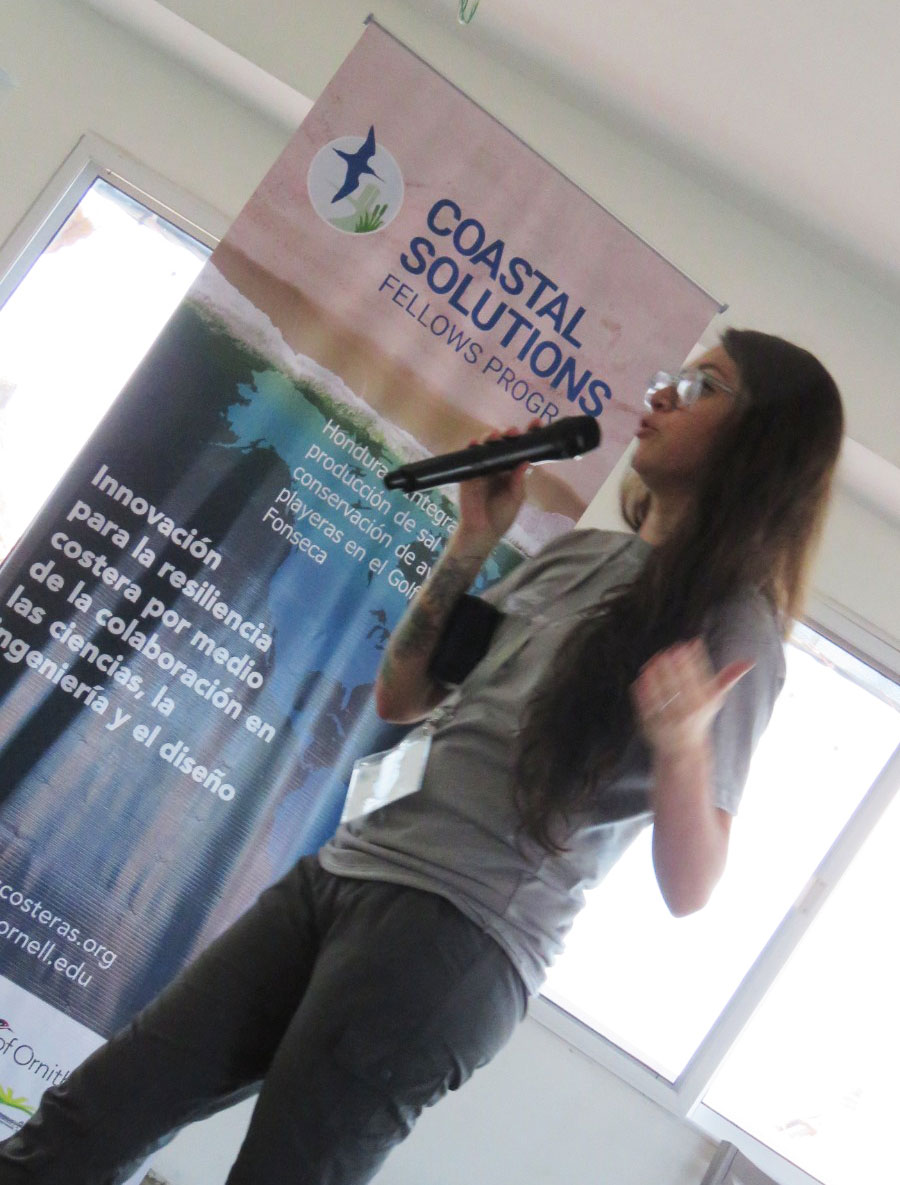
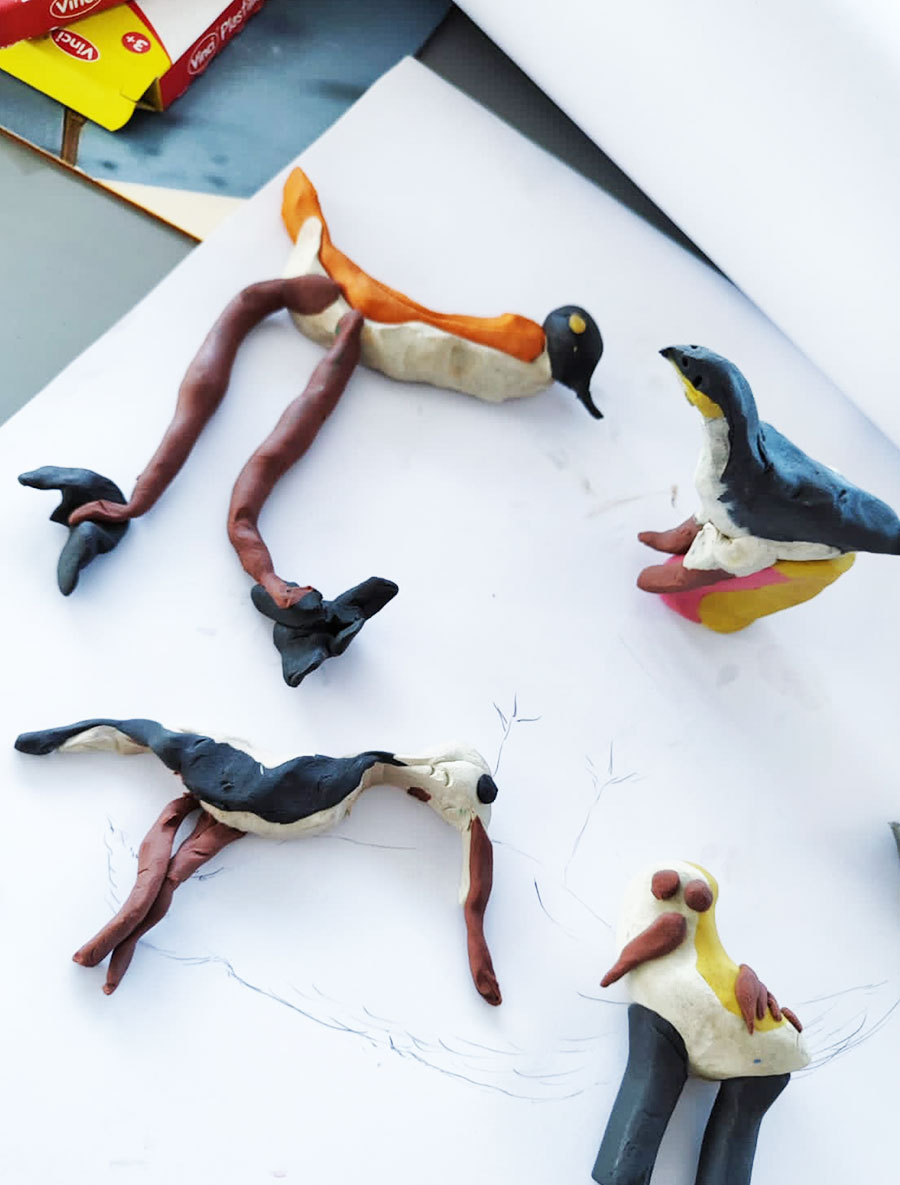
Honduras is taking positive steps in the conservation of shorebirds and other species that use productive sites in the Honduran Pacific. However, the most valuable aspect of this process is that we are working hand in hand with the producers from the beginning. Producers, colleagues, and collaborators are willing to share their knowledge and actively participate in raising awareness of the importance of artisanal salt production in Honduras, both for the local community of San Lorenzo and for the shorebirds that use the Gulf of Fonseca during their migratory journeys.